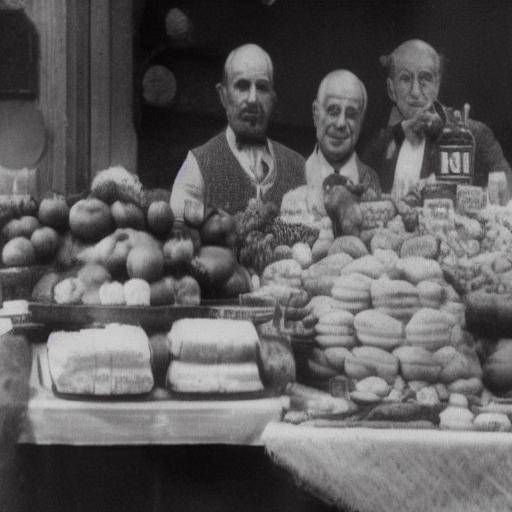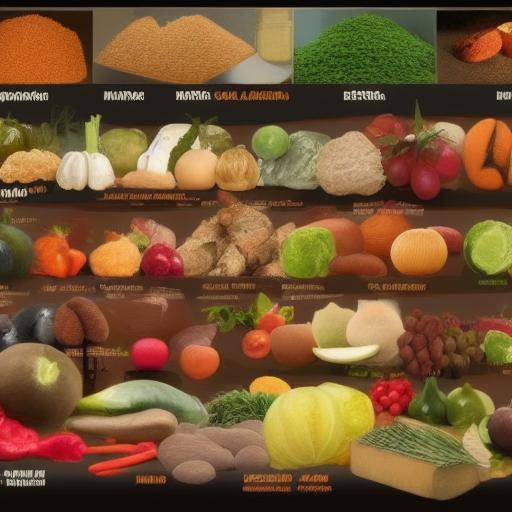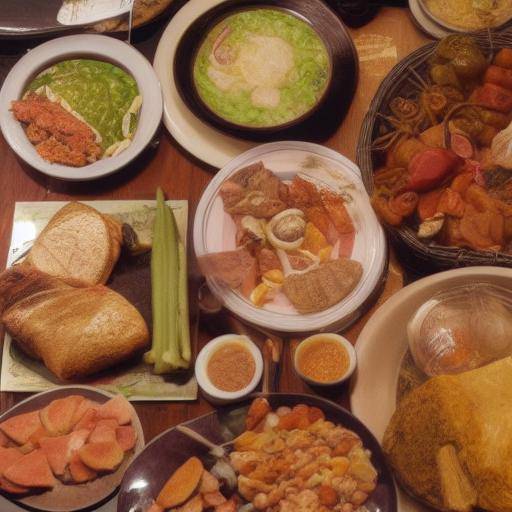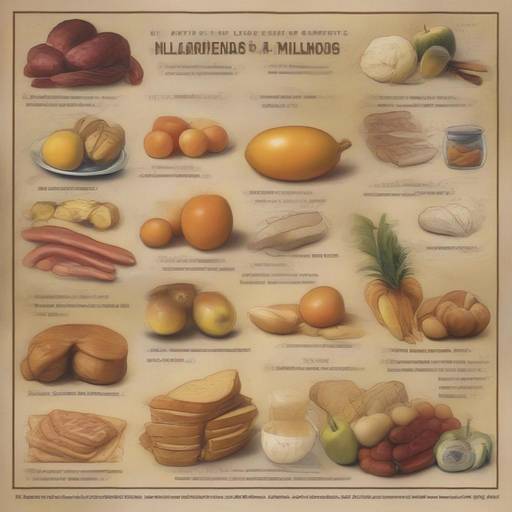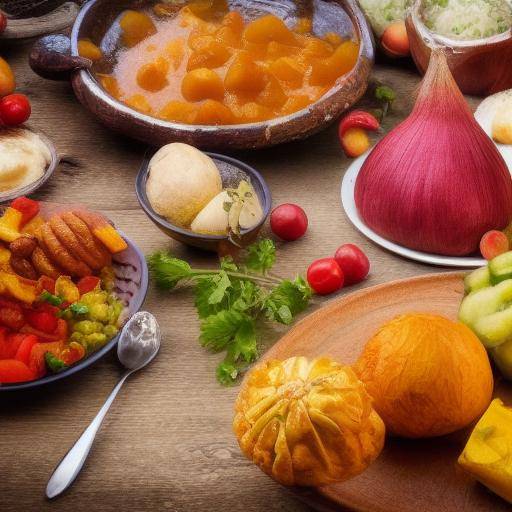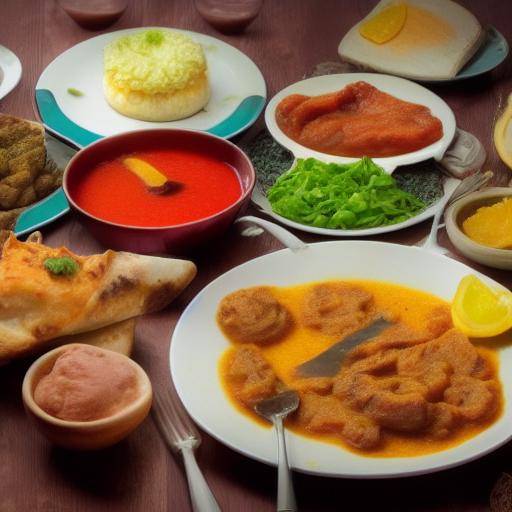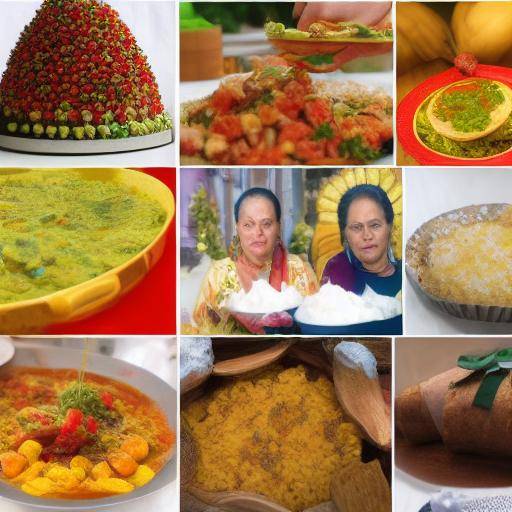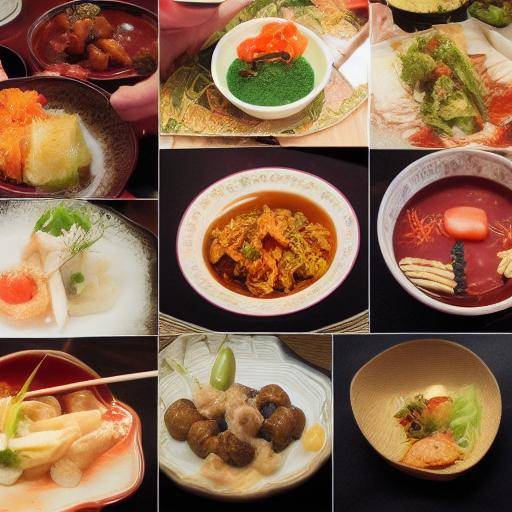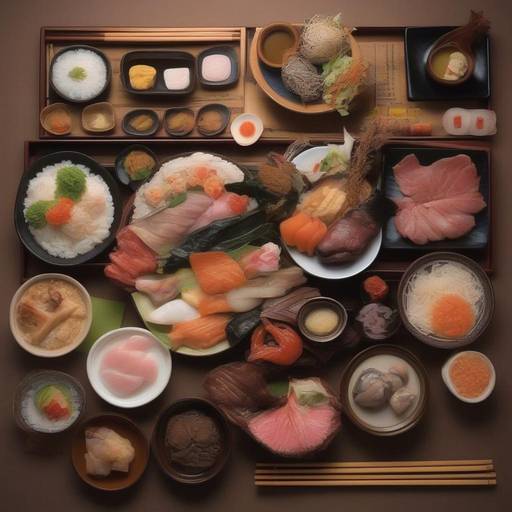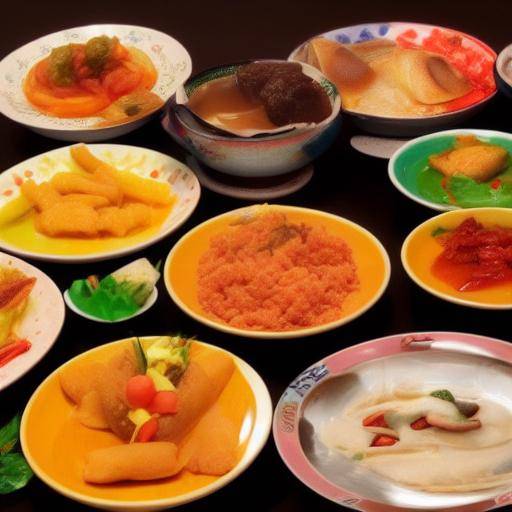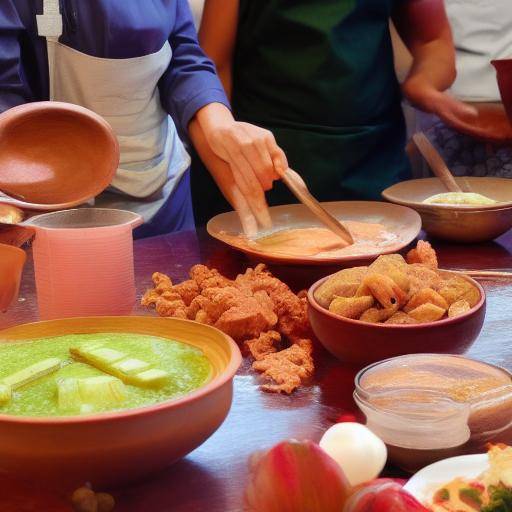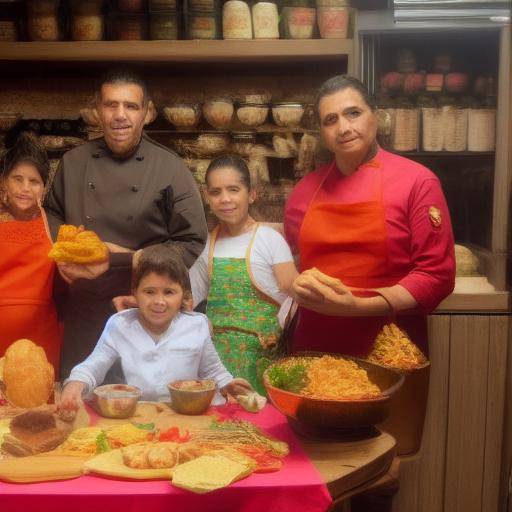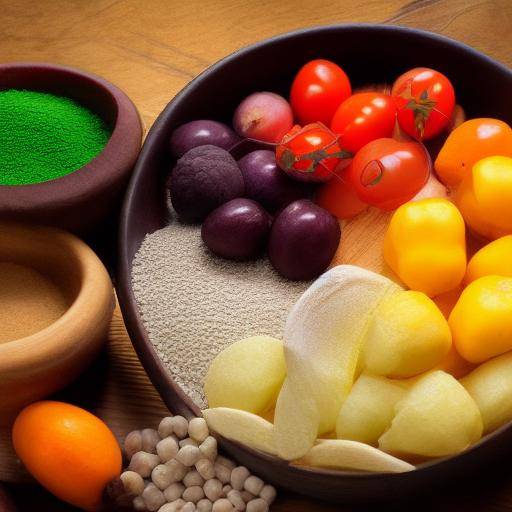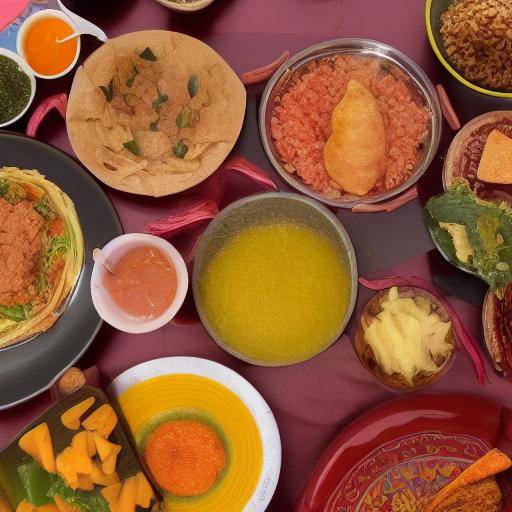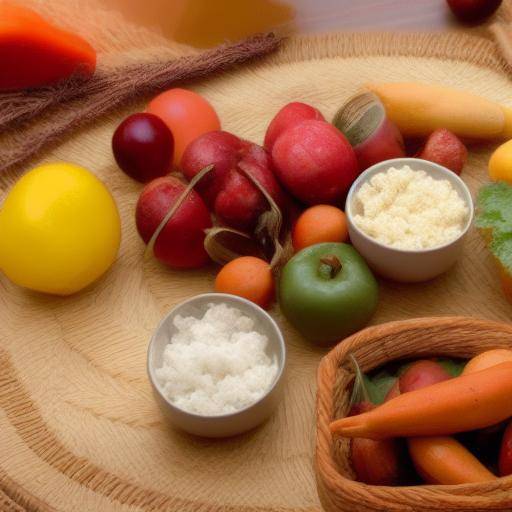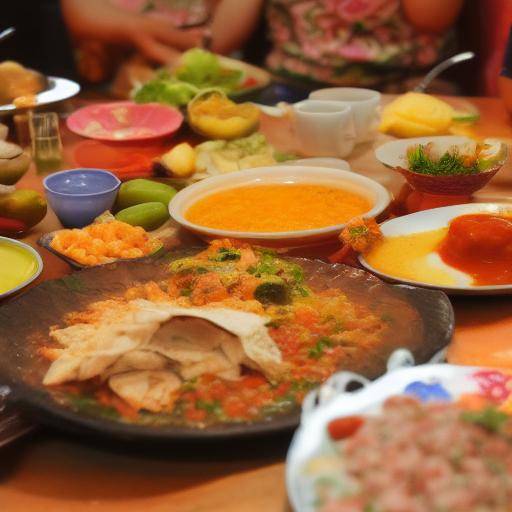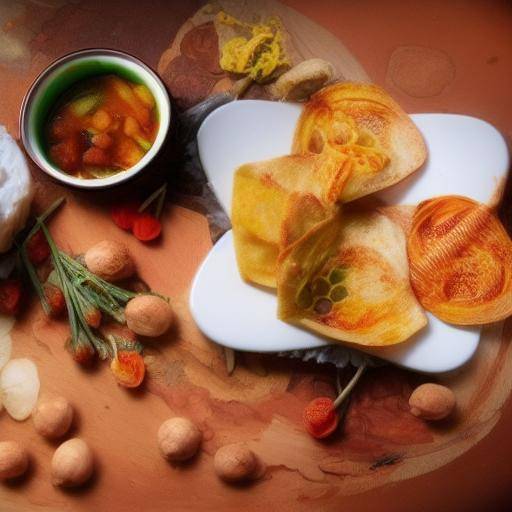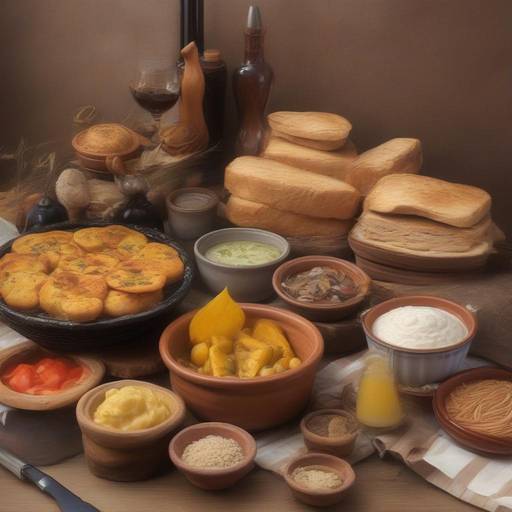
Introduction
The French culture is distinguished by its exquisite culinary tradition, recognized worldwide for its refined flavours, gastronomic techniques and emblematic dishes. In this article, we will thoroughly explore culinary traditions in French culture, discovering the history, influences, iconic dishes and the importance of food in French identity. We will discover how these traditions have transcended borders, influencing global gastronomy and enriching the palate of those who appreciate culinary art. Prepare for a sensory journey that will awaken your appetite and knowledge of French culture.
History and Background
The history of French gastronomy dates back centuries, rooted in the rich regional diversity and the influence of various civilizations. Since the Middle Ages, French gastronomy evolved into a refined art, whose legacy endures until today. The influence of royalty, the advances in agriculture and the creativity of the chefs helped forge the culinary identity of France.
In the 16th century, with the publication of the famous book "Le Viandier" by Guillaume Tirel, the bases of French cuisine were laid as we know it today. Over the centuries, leading chefs and gastronomists, such as Marie-Antoine Carême and Auguste Escoffier, revolutionized culinary techniques, raising French food to the art category.
The French Revolution also left its mark on gastronomy, democratizing access to the ingredients and encouraging the emergence of new popular dishes. Later, the "nouvelle cuisine" would emerge in the 1960s, emphasizing the freshness of the ingredients and a lighter presentation, marking another important stage in the evolution of French cuisine.
Analysis in Deep
The French culinary tradition is recognized for its countless benefits, from the appreciation of the art of food to the promotion of health through the Mediterranean diet and the balanced consumption of wines. However, it also faces challenges in the modern era, such as globalization and food standardization.
Benefits
French food goes beyond the simple act of eating; it represents a celebration of the senses, coexistence and culture. The emblematic dishes, such as boeuf bourguignon, coq au vin and ratatouille, are the reflection of a long tradition of care in the selection of ingredients and the meticulous preparation. This approach in quality and presentation has helped to position French cuisine as one of the most appreciated worldwide.
The Mediterranean diet, which includes French cuisine, has been associated with numerous health benefits, including the prevention of heart disease, longevity and the reduction of the risk of obesity. The moderate consumption of red wine and the abundance of fresh vegetables are an integral part of this diet, providing a nutritional balance that is reflected in the health and well-being of those who follow it.
Challenges
Despite its global recognition, French cuisine has faced challenges in the contemporary era. Globalization has led to the standardization of food, threatening the diversity and authenticity of culinary traditions. The influence of fast food and the industrialization of food has raised questions about the preservation of traditional recipes and the role of French cuisine in a constantly evolving world.
Comprehensive review
French cuisine transcends the borders of France, influencing global gastronomy and serving inspiration for chefs around the world. Its legacy is reflected in the diversity of restaurants and in the appreciation of refined fresh ingredients and culinary techniques. In addition, French enogastronomy, which combines food with wine, has established standards in pairing and appreciation of wines that have been adopted internationally.
The conservation of French culinary traditions is essential to preserving global gastronomic diversity. The transmission of culinary knowledge and skills, as well as the protection of geographical indications, play a crucial role in maintaining this rich heritage.
Comparative analysis
By comparing French culinary traditions with other cultures, his emphasis is on the quality of the ingredients and the importance of the presentation. The influence of French cuisine can be seen in countries around the world, where it merges with local traditions to create unique gastronomic experiences.
French cuisine shares similarities with Mediterranean cuisine, both focused on the use of olive oil, fresh fish, aromatic herbs and an appreciation for food as a fundamental part of everyday life. On the other hand, the regional diversity of French cuisine resembles the variety of flavors and techniques present in Chinese cuisine, where each region brings its unique culinary identity.
Practical Tips and Accessible Tips
For those who wish to experience French cuisine in the comfort of their homes, it is essential to select high quality ingredients such as French butter, artisan cheeses and regional wines. Follow traditional recipes and classic cooking techniques will allow culinary enthusiasts to explore and appreciate authentic French cuisine.
When visiting France, exploring local markets and tasting regional dishes provides an authentic immersion in French culinary traditions. Attending wine and cheese tastings, as well as participating in cooking classes, provides the opportunity to soak up the unique gastronomic culture of each region.
Industry Perspectives and Expert Reviews
Gastronomy experts agree that French cuisine will remain a beacon of culinary excellence, even in an increasingly globalized world. The preservation of traditions, the promotion of culinary innovation and respect for local ingredients are fundamental aspects to ensure the continued relevance of French gastronomy worldwide.
Some well-known chefs highlight the importance of sustainability and ethics in cooking, promoting environmentally friendly practices and animal welfare. These considerations, combined with the commitment to transmit culinary knowledge to future generations, are fundamental for the future of French gastronomy.
Case Studies and Real Life Applications
Great chefs and restaurants have contributed to the spread of French culinary traditions around the world. emblematic establishments such as the "La Tour d'Argent" restaurant in Paris have kept classic recipes and culinary excellence alive, serving as a reference for the preservation of French cuisine.
In addition, the influence of French cuisine is reflected in the creation of renowned gastronomy schools, such as Le Cordon Bleu, which have formed some of the most outstanding chefs worldwide. The legacy of these professionals is not only reflected in the high cuisine, but also in the innovation and diffusion of French culture through food.
Future Trends and Predictions
As the global gastronomic landscape evolves, French cuisine is expected to maintain its leadership position, adapting to new consumer demands and promoting sustainability. Regional diversity and appreciation for seasonal products are expected to be more relevant, promoting an even more ecological and seasonal approach to French gastronomy.
The increase in gastronomic tourism also projects a promising future for French culinary traditions, offering opportunities for visitors from around the world to experience the authenticity of French food in its original environment.
Conclusion
Culinary traditions in French culture have a profound legacy that transcends the simple act of feeding. They represent a genuine manifestation of French identity, the celebration of senses and excellence in culinary art. In a constantly changing world, the preservation and evolution of these traditions are fundamental to keeping global gastronomic diversity alive.
From the history and evolution of French cuisine to its influence on world cuisine and future trends, this article has offered a detailed look at culinary traditions in French culture. In appreciating and understanding the value of these traditions, their legacy is perpetuated for coming generations and the culinary experience is enriched globally.
Frequently asked questions
What are some iconic French cuisine dishes?
The French cuisine has a wide variety of emblematic dishes, including coq au vin, boeuf bourguignon, ratatouille, bouillabaisse, foie gras, escargot and quiche Lorraine, to mention just a few.
How can I experience French cuisine without travelling to France?
To experience French cuisine without travelling to France, you can search for renowned French restaurants in your locality, prepare traditional recipes at home using authentic ingredients and participate in gastronomic events focused on French cuisine.
What is the importance of wine in French cuisine?
Wine is an integral part of French gastronomy, used to enhance the flavours of the dishes and as an accompaniment for the meals. The French culture of wine is recognized worldwide, and the combination of regional wines with specific dishes is considered an art in itself.
How has French cuisine evolved over time?
The French cuisine has experienced numerous evolutions over the centuries, influenced by royalty, progress in agriculture, the French Revolution and culinary movements such as "nouvelle cuisine". These changes have helped shape the culinary identity of France.
What is the influence of French cuisine in global gastronomy?
The influence of French cuisine is reflected in appreciation for high quality ingredients, refined culinary techniques and elegant presentations. In addition, many chefs and renowned establishments have spread French culinary traditions worldwide.
What are the main future trends in French gastronomy?
Future trends in French gastronomy are projected to include a greater focus on sustainability, regional diversity and a renewed appreciation of seasonal ingredients. In addition, gastronomic tourism will offer opportunities for more people to discover the authenticity of French cuisine.
In short, culinary traditions in French culture are a treasure that has transcended time and borders, enriching the world with its refinement, creativity and diversity. In understanding and appreciating these traditions, their legacy is perpetuated and the importance of food is celebrated as a fundamental pillar of culture and identity.

